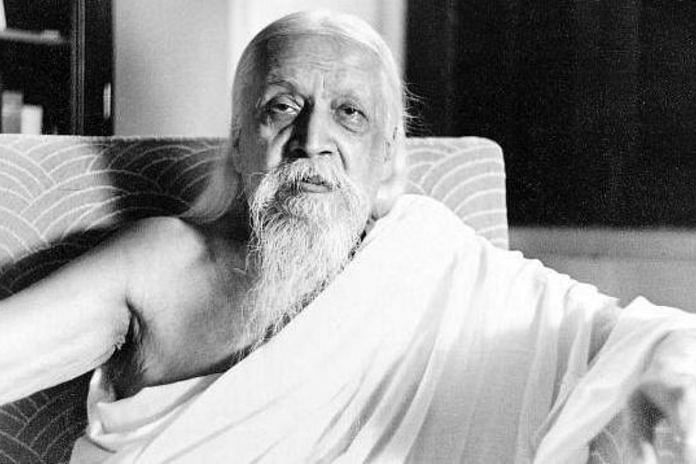Karmayogin [Sage]. This was a weekly magazine started by Aurobindo Ghose in June 1909. A single copy was available for two annas, and subscription could be had for five rupees. Peter Heehs has recounted the story of how the first issue itself reached Viceroy Minto within a fortnight of its publication. The letter ‘To My Countrymen’ published in the 31 July 1909 issue gave the Government of Bengal an opportunity to prosecute Ghose.
By that time he was in Pondicherry, a French territory, and therefore it was difficult for the British Government to arrest or prosecute him. Instead, they prosecuted the printer, Monmohan Nath Ghose, who was sentenced to six months’ rigorous imprisonment under charges of sedition. The officiating Chief Presidency Magistrate at Calcutta, D. Swinhoe, held the article to be seditious because it ‘imputes repression, dishonesty, partiality and base motives to the government in its administration of this country and appeals to the people of India to abandon moderate methods and to join the nationalist and with their aid coerce the Government and compel it to alter its present policy of which the writer strongly disapproves.’
The conviction was set aside in October by the High Court upon appeal. Aurobindo Ghose began the article with a criticism of ‘moderate politics’, exemplified by Gopal Krishna Gokhale (1866–1915) and Pherozeshah Mehta (1845–1915). Excerpts are reprinted in the following pages:
25 December 1909
‘To My Countrymen’
The period of waiting is over. We have two things made clear to us, first, that the future of the nation is in our hands, and, secondly, that from the Moderate party we can expect no cordial co-operation in building it. Whatever we do, we must do ourselves, in our own strength and courage. Let us then take up the work God has given us, like courageous, steadfast and patriotic men willing to sacrifice greatly and venture greatly because the mission also is great. If there are any unnerved by the fear of repression, let them stand aside. If there are any who think that by flattering Anglo-India or coquetting with English Liberalism they can dispense with the need of effort and the inevitability of peril, let them stand aside. If there are any who are ready to be satisfied with mean gains or unsubstantial concessions, let them stand aside. But all who deserve the name of Nationalists, must now come forward and take up their burden.
The fear of the law is for those who break the law. Our aims are great and honourable, free from stain or reproach, our methods are peaceful, though resolute and strenuous. We shall not break the law and, therefore, we need not fear the law. But if a corrupt police, unscrupulous officials or a partial judiciary make use of the honourable publicity of our political methods to harass the men who stand in front by illegal ukases [a decree issued by the Russian Tsar], suborned and perjured evidence or unjust decisions, shall we shrink from the toll that we have to pay on our march to freedom? Shall we cower behind a petty secrecy or a dishonourable inactivity? We must have our associations, our organisations, our means of propaganda, and, if these are suppressed by arbitrary proclamations, we shall have done our duty by our motherland and not on us will rest any responsibility for the madness which crushes down open and lawful political activity in order to give a desperate and sullen nation into the hands of those fiercely enthusiastic and unscrupulous forces that have arisen among us inside and outside India.
So long as any loophole is left for peaceful effort, we will not renounce the struggle. If the conditions are made difficult and almost impossible, can they be worse than those our countrymen have to contend against in the Transvaal? Or shall we, the flower of Indian culture and education, show less capacity and self-devotion than the coolies and shopkeepers who are there rejoicing to suffer for the honour of their nation and the welfare of their community? What is it for which we strive?
The perfect self-fulfilment of India and the independence which is the condition of self-fulfilment are our ultimate goal. In the meanwhile such imperfect self-development and such incomplete self-government as are possible in less favourable circumstances, must be attained as a preliminary to the more distant realisation. What we seek is to evolve self-government either through our own institutions or through those provided for us by the law of the land. No such evolution is possible by the latter means without some measure of administrative control.
We demand, therefore, not the monstrous and misbegotten scheme which has just been brought into being, but a measure of reform based upon those democratic principles which are ignored in Lord Morley’s Reforms,— a literate electorate without distinction of creed, nationality or caste, freedom of election unhampered by exclusory clauses, an effective voice in legislation and finance and some check upon an arbitrary executive.
We demand also the gradual devolution of executive government out of the hands of the bureaucracy into those of the people. Until these demands are granted, we shall use the pressure of that refusal of co-operation which is termed passive resistance. We shall exercise that pressure within the limits allowed us by the law, but apart from that limitation the extent to which we shall use it, depends on expediency and the amount of resistance we have to overcome.
On our own side we have great and pressing problems to solve. National education languishes for want of moral stimulus, financial support, and emancipated brains keen and bold enough to grapple with the difficulties that hamper its organisation and progress.
The movement of arbitration, successful in its inception, has been dropped as a result of repression. The Swadeshi-Boycott movement still moves by its own impetus, but its forward march has no longer the rapidity and organised irresistibility of forceful purpose which once swept it forward.
Social problems are pressing upon us which we can no longer ignore. We must take up the organisation of knowledge in our country, neglected throughout the last century. We must free our social and economic development from the incubus of the litigious resort to the ruinously expensive British Courts. We must once more seek to push forward the movement toward economic self-sufficiency, industrial independence. These are the objects for which we have to organise the national strength of India.
On us falls the burden, in us alone there is the moral ardour, faith and readiness for sacrifice which can attempt and go far to accomplish the task. But the first requisite is the organisation of the Nationalist party. I invite that party in all the great centres of the country to take up the work and assist the leaders who will shortly meet to consider steps for the initiation of Nationalist activity. It is desirable to establish a Nationalist Council and hold a meeting of the body in March or April of the next year. It is necessary also to establish Nationalist Associations throughout the country. When we have done this, we shall be able to formulate our programme and assume our proper place in the political life of India.
 This excerpt from Devika Sethi’s ‘Banned & Censored: What the British Raj Didn’t Want Us to Read’ has been published with permission from Roli Books.
This excerpt from Devika Sethi’s ‘Banned & Censored: What the British Raj Didn’t Want Us to Read’ has been published with permission from Roli Books.



